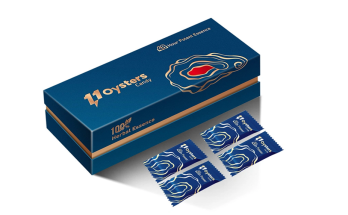Heavy menstrual flow is common, affecting between twenty-seven to fifty-four percent of women who menstruate. Menstrual flow with unusual heavy or prolonged periods is medically called menorrhagia. Heavy menstrual bleeding lasts longer than seven days and involves more blood flow than normal menstruation. The bleeding can be so much that you need to change your pad every hour or even change several pads per hour. Blood clots in heavy bleeding can be the size of a quarter or even bigger. Menorrhagia interferes with your daily activities. If you have heavy menstrual bleeding, you need to visit your reliable specialist, Dr. Nicole Dequattro in Silver Spring, for diagnosis and treatment. Below are the causes and complications of heavy menstruation.
Causes
Hormone imbalance
During the menstrual cycle, hormones estrogen and progesterone control the buildup of the endometrium, which sheds in menstruation. If the two hormones imbalance, the endometrium will develop in excess leading to a heavy menstrual flow. Obesity, thyroid issues, and polycystic ovary syndrome are some conditions causing hormonal imbalance.
Dysfunction of the ovaries
When ovaries do not release an egg during a menstrual cycle, the body does not produce progesterone. The absence of progesterone causes hormonal imbalance leading to menorrhagia.
Uterine fibroids
Uterine fibroids are noncancerous tumors found in the uterus, and they appear in your childbearing years. They may cause heavy bleeding or too prolonged menstrual bleeding.
Pregnancy complications
Miscarriage can cause a late or heavy menstrual flow. If you have a low-lying placenta or placenta previa, you can experience heavy menstrual bleeding.
Inherited bleeding disorder
An inherited bleeding disorder known as von Willebrand’s disease, a complication where a crucial blood-clotting factor is inefficient or damaged, can cause menorrhagia.
Polyps
Heavy menstrual bleeding can be associated with small, benign growths found on the uterus lining.
Adenomyosis
Adenomyosis is a complication where your glands from the uterus lining become embedded in the uterine muscle. It causes heavy menstrual bleeding and painful periods.
Intrauterine device (IUD)
The use of a non-hormonal intrauterine device for birth control causes heavy bleeding. Your doctor can advise you on an alternative method.
Cancer
You can have excessive menstrual flow if you suffer from uterine or cervical cancer. It mostly happens if you are post-menopause or have had an abnormal Pap test before.
Medications
Some anti-inflammatory drugs, hormonal drugs, and anticoagulants like warfarin can lead to excessive or prolonged menstrual flow.
Other conditions associated with heavy bleeding include liver or kidney disease.
Complications
- Anemia. Heavy menstrual bleeding causes anemia by reducing circulating red blood cells. Hemoglobin, a protein in the red blood cells, carries oxygen to tissue. You will have an iron deficiency as your body attempts to replace lost red blood cells by using your iron stores to make more hemoglobin which carries oxygen in red blood cells. Menorrhagia decreases your iron levels increasing the risks of iron deficiency anemia.
- Severe pain. Heavy bleeding can cause painful menstrual cramps, which may require medical attention.
You need to seek medical attention if your menstrual flow is hefty or lasts more than seven days. Schedule an appointment with Capital Women’s Care for treatment if you experience heavy menstrual bleeding.




